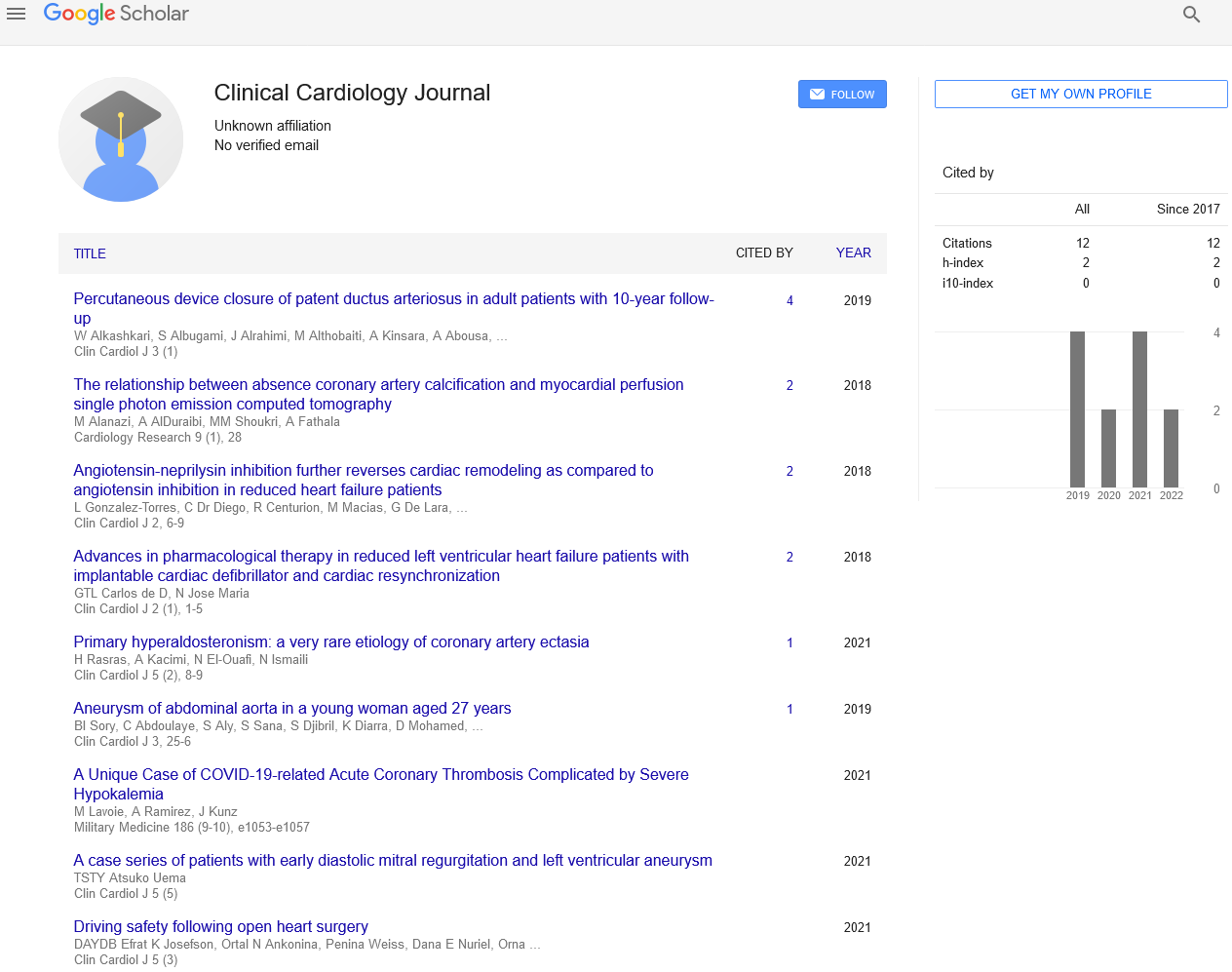
Sign up for email alert when new content gets added: Sign up
Abstract
Diabetic related cardiomyopathy: Commentary
Author(s): Sai Sravani Botcha VenkataDiabetic cardiomyopathy is a cardiac muscle condition that affects diabetics. It can cause heart failure, which is defined as the inability of the heart to adequately circulate blood throughout the body, as well as fluid accumulation in the lungs (pulmonary edoema) or legs (leg edoema) (peripheral edema). Patients with diabetes mellitus show an increased incidence of Heart Failure (HF) even after adjustment for well-established risk factors for HF such as hypertension and ischemic heart disease. The resulting specific form of cardiomyopathy is known as “Diabetes Mellitus Related Cardiomyopathy” (DMCM). Pathogenic mechanisms underlying DCM are likely to be multifactorial from altered myocardial metabolism (hyperglycemia, hyperinsulinemia, increased circulating fatty acids and triglycerides) to microvascular disease, and altered myocardial structure with fibrosis. Current guidelines recommendations for medical treatment on HF in patients with Diabetes Mellitus (DM) do not differ from those for patients without DM.




